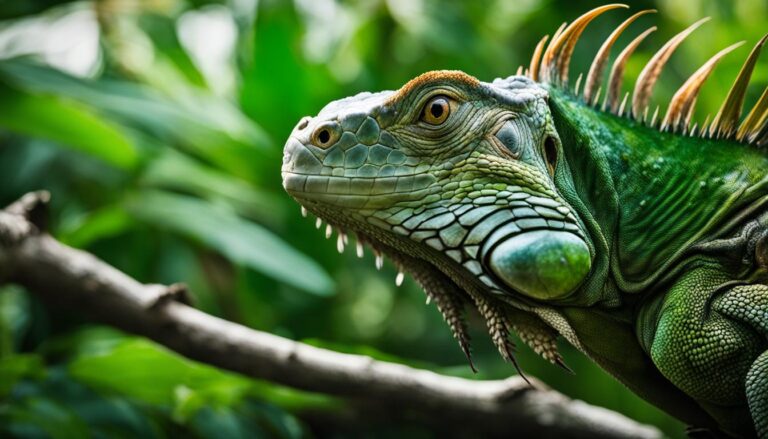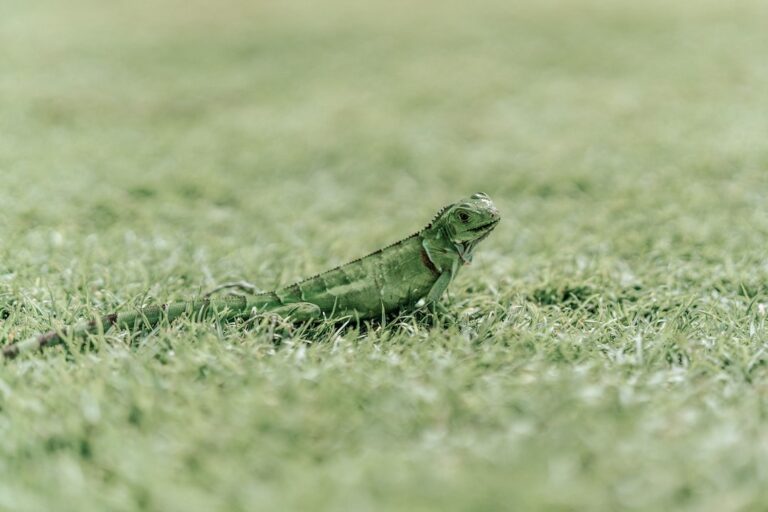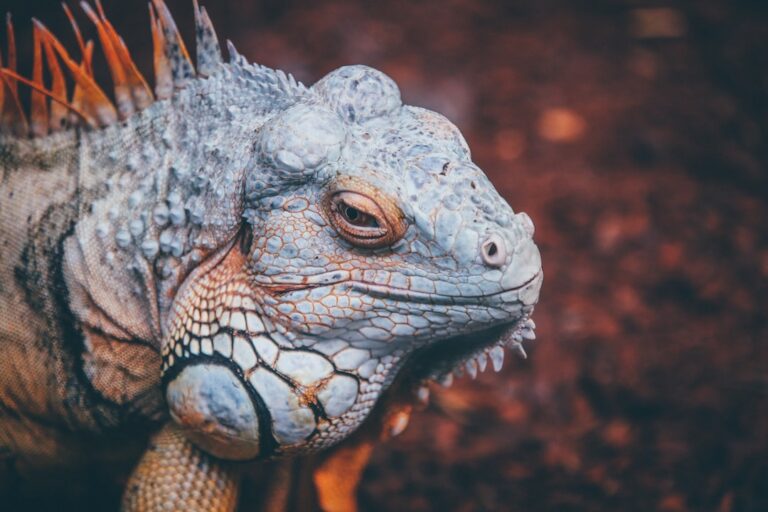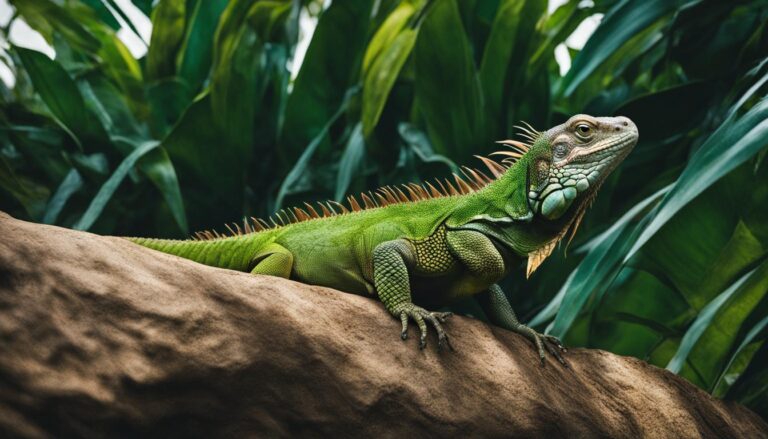Can Iguanas Eat Mushrooms?
Iguanas are herbivorous reptiles that primarily feed on a variety of plant matter. Their diet consists of leafy greens, fruits, vegetables, and occasionally flowers. It is important for iguanas to have a balanced diet that provides them with all the necessary nutrients for their growth and overall health.
A balanced diet is crucial for iguanas as it helps prevent nutritional deficiencies and promotes proper growth and development. Without a proper diet, iguanas can suffer from various health issues such as metabolic bone disease, vitamin deficiencies, and digestive problems. Therefore, it is essential for iguana owners to understand the nutritional needs of their pets and provide them with a well-rounded diet.
Table of Contents
Understanding the Nutritional Needs of Iguanas
Iguanas have specific nutritional requirements that need to be met in order for them to thrive. They require a diet that is high in fiber, low in fat, and contains adequate amounts of calcium and vitamin D3. Fiber is important for proper digestion and helps prevent constipation in iguanas.
Calcium is crucial for the development and maintenance of strong bones and teeth in iguanas. It also plays a role in muscle function and blood clotting. Vitamin D3 is necessary for the absorption of calcium from the diet. Without sufficient vitamin D3, iguanas may develop metabolic bone disease, which can lead to weak bones and deformities.
Types of Mushrooms and Their Nutritional Value
Mushrooms are a type of fungus that come in various shapes, sizes, and colors. They are known for their unique taste and texture, and are often used in cooking. While mushrooms are not typically a part of an iguana’s natural diet, some species can provide nutritional benefits if fed in moderation.
Different types of mushrooms have varying nutritional profiles. For example, button mushrooms are low in calories and fat, but high in protein and fiber. They also contain vitamins such as vitamin B2, vitamin B3, and vitamin D. Shiitake mushrooms are rich in antioxidants, which can help boost the immune system. They also contain minerals like copper, manganese, and zinc.
Can Iguanas Safely Consume Mushrooms?
While mushrooms can provide some nutritional benefits for iguanas, it is important to exercise caution when feeding them to your pet. Not all mushrooms are safe for iguanas to consume, as some species can be toxic and cause harm.
Before feeding mushrooms to your iguana, it is important to research and identify safe mushroom species. It is recommended to consult with a veterinarian or reptile expert who can provide guidance on which mushrooms are safe for your iguana to eat.
Potential Risks of Feeding Iguanas Mushrooms
Feeding mushrooms to iguanas can come with potential risks. Some mushrooms contain toxins and harmful substances that can be dangerous or even fatal if ingested by iguanas.
Toxic mushrooms can cause symptoms such as vomiting, diarrhea, abdominal pain, tremors, seizures, and even organ failure in iguanas. It is important to be aware of the potential risks associated with feeding mushrooms to your pet and take necessary precautions.
Symptoms of Mushroom Poisoning in Iguanas
If an iguana ingests toxic mushrooms, it can experience symptoms of mushroom poisoning. These symptoms may vary depending on the type of mushroom ingested and the amount consumed.
Common signs of mushroom poisoning in iguanas include vomiting, diarrhea, loss of appetite, lethargy, weakness, tremors, seizures, and changes in behavior or coordination. If you suspect that your iguana has ingested toxic mushrooms, it is important to seek veterinary care immediately.
Precautions to Take When Feeding Iguanas Mushrooms
When feeding mushrooms to iguanas, it is important to take certain precautions to ensure their safety. Here are some safety measures to consider:
1. Research and identify safe mushroom species: Before feeding mushrooms to your iguana, thoroughly research and identify safe mushroom species. Consult with a veterinarian or reptile expert who can provide guidance on which mushrooms are safe for your pet.
2. Avoid wild mushrooms: It is best to avoid feeding wild mushrooms to your iguana, as they can be difficult to identify and may pose a risk of toxicity.
3. Wash and prepare mushrooms properly: If you decide to feed mushrooms to your iguana, make sure to wash them thoroughly and remove any dirt or debris. It is also important to cook the mushrooms before feeding them to your pet, as this can help break down some of the indigestible components.
Alternatives to Mushrooms for a Balanced Iguana Diet
While mushrooms can provide some nutritional benefits for iguanas, there are plenty of other food options that can be included in their diet. Leafy greens such as kale, collard greens, and mustard greens are excellent sources of vitamins and minerals for iguanas.
Fruits such as strawberries, blueberries, and mangoes can be given as occasional treats. Vegetables like bell peppers, carrots, and squash can also be included in an iguana’s diet.
It is important to provide a variety of foods to ensure that your iguana receives all the necessary nutrients. This can help prevent nutritional deficiencies and promote overall health.
How to Incorporate Mushrooms into an Iguana’s Diet Safely
If you decide to incorporate mushrooms into your iguana’s diet, it is important to do so safely. Here are some tips for safely introducing mushrooms into an iguana’s diet:
1. Start with small amounts: Begin by offering a small amount of mushrooms to your iguana and observe how they react. If there are no adverse reactions, you can gradually increase the amount over time.
2. Monitor for any signs of toxicity: Keep a close eye on your iguana for any signs of mushroom poisoning. If you notice any symptoms such as vomiting, diarrhea, or changes in behavior, discontinue feeding mushrooms immediately and seek veterinary care.
3. Feed in moderation: While mushrooms can provide some nutritional benefits, they should be fed in moderation. Too much mushroom consumption can lead to digestive upset or other health issues in iguanas.
The Importance of a Balanced and Safe Iguana Diet
In conclusion, a balanced and safe diet is crucial for the health and well-being of iguanas. While mushrooms can provide some nutritional benefits, it is important to exercise caution when feeding them to your pet.
Researching and identifying safe mushroom species, taking necessary precautions, and monitoring your iguana for any signs of toxicity are essential steps to ensure their safety. It is also important to provide a variety of other foods to ensure that your iguana receives all the necessary nutrients.
By providing a balanced and safe diet, you can help your iguana thrive and live a healthy life. Always consult with a veterinarian or reptile expert for guidance on the best diet for your pet iguana.
If you’re curious about what other foods iguanas can or cannot eat, you might also be interested in an article on Reptile Friend titled “What Flowers Do Iguanas Not Eat?” This informative piece explores the types of flowers that iguanas tend to avoid, as well as the potential dangers of certain flowers for these reptiles. To learn more about this topic, check out the article here.







